.
.
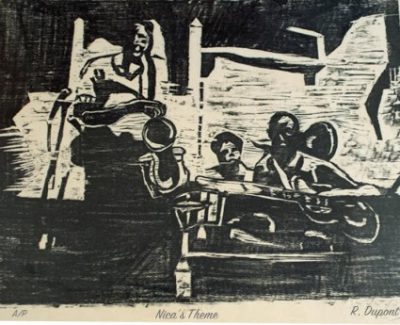
“Nica’s Theme,” by Russell Dupont
.
Twenty-eight poets contribute 37 poems to the Jerry Jazz Musician Fall Poetry Collection, living proof that the energy and spirit of jazz is alive — and quite well.
.
(Featuring the art of Russell Dupont. .All images within this collection are copyright Russell Dupont)
.
.
_____
.
.
Jazz
I’ll never get used to
the way it takes my head off
trumpet and tenor accelerating in unison
then
the piano
bass and drums
burning rubber
what luck then
the police do not arrest me
.
by John Stupp
.
.
___
.
.
Jazz is
Jazz is a noun, with verve,
almost a description,
soulful and expressive,
from the beginning,
sophisticated.
It’s a touch of class,
at the gathering on the upper west side.
It’s Autumn in the park,
Women wearing scarves and hats,
chatting by the pond,
in a sea of orange and red.
It’s the dull tan yellow of an old trumpet,
blowing a chorus.through the smoke,
double-timing it.
It’s the ghosts of New Orleans,
marching and mourning,
celebrating the new day.
It’s a sweaty, gasping release,
the players giving all they’ve got,
screeching, scraping,
howling at the moon,
pounding the music into dust.
Jazz was born and raised in the city,
it is the sound of renewal,
the latest thing and the old guard,
hand in hand.
Complex and subtle,
it breathes as we breathe.
It remembers the past,
Its creators and disciples,
and the thousands who served.
They are all contained in its beauty.
It is forever.
.
by Freddington
.
.
___
.
.
Don’t Call It Jazz
It’s spring
And outside the birds are soloing like Phil Woods
Who I saw once at the Village Vanguard
Back in the 70’s
A guy got up from the audience to sit in
On Dear Old Stockholm
What key? Phil asked
I don’t play in keys, he said
Oh—
Everybody waited
Phil gestured for the man to sit down
Without keys it’s not jazz
He said
Call it anything you want
But don’t call it jazz—
Ok
Kind of like this poem
Call it anything you want
But don’t call it poetry
.
by John Stupp
.
.
___
.
.
And All That Jazz
Pacing my words trying to sew up the loopholes,
I knew it’s trouble
when after eavesdropping on her every night
plus more on the weekend
she admits to sleeping with other boys
while listening to Coltrane.
.
by Gerard Sarnat
.
.
.
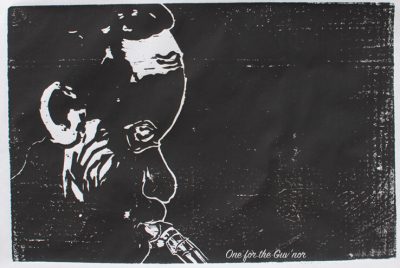
“One for the Guv’nor” by Russell Dupont
.
.
.
Paean for Coltrane
Trane knew and blew rage
that was prayer prayer that was
rage engaged heart and mind
enveloped listeners in all
that could be
felt or known
in this miserable destructive
alluring astonishing enduring
world that enmeshes all
who pass through
conscious or unconscious
all is carnal spiritual joyous
destructive hopeful
and lost even as it is born
his horn could and did shout
hosanna amen hallelujah
and God damn damn damn
us one and all
a horn that sang notes
torn from flesh and bone
alone on its wild journeys
into places few could visit
a music sacred sacrilegious
unknowable but overwhelming
to all who heard and wept
heard and cheered heard
and were swept down
rivers to the sea
he left us
but the music remains
.
by Michael L. Newell
.
.
___
.
.
Trip Down Memory Lane
……………………1.
Count Basie on our cassette player,
“…all that trumpet noise”, he said,
“why don’t we play this one instead?”
Then he pulled out his big band orchestra
record, played it on vinyl like a boss.
……………………2.
In a quite sentimental mood,
he would stare at the trees
all the while as he listens
and repeatedly asks my mom
if I really did mean to play
“What A Wonderful World”
…………………………………..(in memory of my father, Ronnie L. Genorga)
.
by Anggo Genorga
.
.
___
.
.
Threnody
Thinking of
my father now gone
would he approve of me?
oh lover of Hoagy Carmichael
of Stardust and Skylark
songs that have resisted my best efforts
you will not come back to life
just because I wrote this poem
and handed it to a stranger
.
by John Stupp
.
.
___
.
.
News Comes of Your Demise
………………………………….(for Ben Saltman, 1927-1999)
A picture, a poem, a book,
a few anecdotes, a foolish
argument barely remembered,
a dinner where we saved
the world from fools
much like us, these few
things are all I carry with me,
and I grieve that so little
remains of one who meant
so much for so long;
in a restaurant where I sit
staring at your wife’s letter,
an old jukebox plays “So What”
from Kind of Blue, in a room filled
with expats from a dozen nations,
and I remember our discussions
of relative merits of Miles versus
Trane, Ellington versus Basie,
Lady Day versus Ella,
and all those thousands of words
now seem inane; only the music matters,
as only the life mattered;
I pray we did not waste both,
and the music continues to fill
the small cafe in Tashkent
where I grieve, thousands of miles
and a dozen years from home.
Dolor fills the horns of Trane,
Miles, and Cannonball, music that mourns
life’s limitations yet eases my distress.
I sip a Benedictine and Brandy, eavesdrop
on conversations in multiple languages,
understand nothing but irreparable loss.
.
……………………………………………………..(Tashkent, Uzbekistan, 1999)
.
by Michael L. Newell
.
.
___
.
.
Good Old Average Guys
God-loving,
modest, humble, funny, sweet,
down-to-earth but yet, creative:
these are the ways to describe the ” good old average guys.”
Their stories are familiar
from the tales of Roger Miller: the guitar playing Texan and a singer.
The guys are unappreciated when alive
but greatly missed after they die
since despite their tuned-down tones
their characters are not run-of-the-mill at all.
These good men are not interested in money but instead,
they are openly admiring
the many aspects of Nature and the miracles of God.
Just like in Miller’s songs, the guys are making the silly calculations
of Love,
as well as sharing their observations
of how chilly the grass is (really,)
and wishing that the fair maidens of this world would not have to
die unhappy and alone.
.
by Paula Puolakka
.
.
.
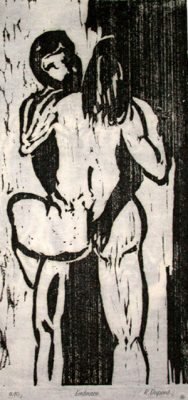
“Embrace,” by Russell Dupont
.
.
Autumn in New York
Feeling at home on a park bench
near the West 86th Street entrance,
I watched the human scenery
change per second—
joggers and cyclists whizzed by,
solitary creatures glued to cell phones,
kids being kids on a Saturday afternoon.
Mothers and nannies sat across from me,
not noticing Central Park,
a conceptual oasis
of red, gold, green, and brown—
in contrast to the clear, cool October sky
made bluer by the sun.
A dapper gentleman
with a grayish-white goatee
tipped his fedora.
His African motif walking stick
gave him dignity and balance.
He sat down, asked if I was from the area.
I replied no,
said I had time to enjoy the scenery
before visiting an old friend nearby.
The man smiled,
his dark eyes expressed admiration
for the changing colors of the park
and the crisp, blue October sky.
He whistled a tune,
“Autumn in New York,”
before sharing his stories
with a stranger.
He introduced himself as Joey,
said that this was
his Bessie’s favorite bench and season.
Today was her birthday.
She would have been ninety-four,
but a stroke took her away
on this day three years ago.
Bessie was a dancer at the Cotton Club,
Joey played piano at the Onyx Club.
They first met at Minton’s Playhouse
where they mingled with
Charlie “Bird” Parker, Thelonious Monk,
John Birks .“Dizzy”. Gillespie,
and others.
They got married,
retired their bohemian careers.
She became a part time accountant,
he, a high school music teacher,
had three sons—
a lawyer, doctor, and investment banker.
I said,
…………….“No musicians or dancers?”
He smiled,
…………….“People have to earn a living.
…………….We can only teach appreciation,
…………….like for the beautiful day we have today.”
He pointed his walking stick
at the lovers who walked hand-in-hand.
I shook my head, said not for me,
excused myself since I had to go.
He wished me a ‘bless day,’
imparted:
…………….“You’re never alone when you share things in common.”
As I said goodbye,
a gray-haired lady winked at me,
approached the bench
where she sat down with Joey.
My light eyes expressed admiration
for the changing colors of the park
and the crisp, blue October sky.
I started humming,
“Autumn in New York,”
turned around,
saw two red maple leaves
together on the bench.
.
by Patricia Carragon
.
.
___
.
.
Girl and Guitar
She holds it almost like a cellist,
like a lover. Her wistful face
is tilted, softly turned away,
and on that tender side of sad
the camera worships. Her long white hands
and denim posture are less winsome,
a virile blue-jean counterpoint
to sepia locks that tumble-curl
like eighth note riffs across a score.
She sits before a clapboard fence
with slats as straight as metal strings.
There is no sky. Her face—the moon,
a solemn tune. She is composed.
.
by Felicia Chernesky
.
.
___
.
.
Pat Martino at The Balcony
That night we caught Pat Martino
at The Balcony I want to say
it was raining, and there was still
some love between us, in the way
the vibrations of guitar strings mirrored
our vibrating bodies, eyes falling
on one another like strangers,
like something seen from so great a distance
it could be the shadow of many birds,
or the absence of what we once pledged;
perhaps when he played the Sondheim tune
we finally saw each failure crystallized
like a museum artifact we would visit
Sundays separately and for no other reason
than once many years ago it seemed
the most beautiful of wonders, a jewel
in whose heart the rain was perpetual,
the thrum of it quivering against
my nerves, humming up and down
your too white throat.
.
by Kristofer Collins
.
.
.
.
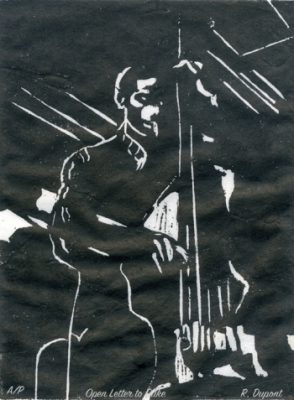
“Open Letter to Duke,” by Russell Dupont
.
.
Lakelight Swing
This is a night to slip on dancing shoes
and tap tap tap your way to the middle
sidle, sidle back
Slip on dancing shoes, this is the night
to slip, to slide
in dancing shoes, prancing
shoes, to slip, to slither, to glide
This is the night to tap tap tap
on the glittering lake
out to the middle and
up the dark wall of
night
Now is the time to kick off your shoes
wiggle your toes
slap bare feet on cool moonglow
on brassy notes
on tin pan notes, on jazzy razzmatazzy
notes
Slither into a cool white nightie
and sidle, sidle back
Take a running glide, then one slick stride
to the tip top
of the night
Aphrodite in a nightie
swoop and glide
act slightly flighty
slip and slide
take the ultimate leap
wrap your arms round the neck of the moon
swing over her shoulder and
down
This is a night to tip
toe up the path, hip
hop up the path
tip toe up the bright-lit
path, up the spotlit path
up the hot-lipped path
to her beaming face
to swing swing swing
from her porcelain neck
glide down her silvery slide
slide down her glittery glide
to cool lake water
lit up by her one-eyed stare
.
……………….Originally appeared in.Free Verse.November/December 2003 issue
.
by Phyllis Wax
.
.
___
.
.
Don’t Fret
Let’s spend the night
sliding, gliding, striding
cross the floor.
Don’t fret. The bass man
won’t let our feet go astray.
Dip, swirl, and sway,
don’t let this night get away
without a wild celebration
filled with ecstatic play
of body: legs, hips, chest,
feet, all awhirl, a-twirl,
all combine imagination
with rules of dance, and
liberation of music unleashing
wild hearts in courtship,
in dazzling exploration of time,
space, touch, arriving as one
at a perfect ending.
.
by Michael L. Newell
.
.
___
.
.
It Is For Sure! Just Jazz!
“Dedicated to all jazz trios, past and present. Also to Oscar Peterson,
Ray Brown, and Gene Harris and all the jazz groups they have had
through the years.”
four to the bar
sixteen bar blues,
settin’ a groove—
usually, a
piano, bass
and drums, & that
drivin’ high-hat
struts ratta tat
tat: all those sounds
swingin’ so tight.
half-tones of thirds
and sevenths, “blue
notes” playing on:
walkin’ bass, strums
on & on &
yes, this music’s
exactly who
it is! just jazz!
snapping fingers
to blues-tinged chords
tapping it out,
you know, “you” are
the instruments,
notes together:
so immortal
making moments!
they keep playing
playin’ your way
you can’t help say
yes! yes! yes! yes!
rhythm swingin’
sustains that groove.
singin’ along
your riff sounds clear
you are with it
layin’ it down:
groovin’ so here!
………….Previously published in: Improvijazzation Nation, Mar. 1995
.
by Alan Yount
.
.
___
.
.
Pharaoh Sanders
blew his sax after he saw
his people in bondage
blew the soul of a thousand years
in his black notes
he recognized god
as the true king and
liberator
saw fire in the melody
of sounds
Pharoah blew his horn
cos he saw blues manifested
in the face of
god
and he wept…and the people
Danced
.
by Erren Kelly
.
.
.
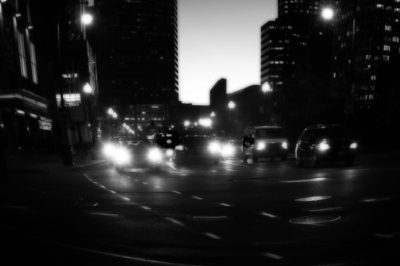
“Atlantic Ave., Boston,” by Russell Dupont
.
.
.
Into the City
………………………..(for Pharaoh Sanders)
The shadows blink and flicker through the empty subway car,
they twist and cross over,
bending and shifting with the sun,
decorating the moving train.
Over the bridge we go,
shooting through the intersecting steel,
the beams that divide the sunlight,
that frame the view over the East river.
In the corner seat,
a man is using a saxophone case as a table,
working on a song,
a new arrangement.
He yawns and puts the pencil down,
shuts his eyes and drifts away,
into the logic of the sun,
the mist of the afternoon clouds,
the endless current of the river below.
As we arrive in Manhattan,
he awakens and exits the train,
to rejoin the crowds and noise,
to walk through the constant glare of the modern world.
but inside, he is calm,
sitting by the river,
shoes off, in the sun.
Tonight’s gig will be a message of peace,
That’s what matters.
.
by Freddington
.
.
___
.
.
Manhattan Cantos
“A good Manhattan’s well worth waiting for.” Jimmy Campbell (RIP)
Canto One: The Builders
They are all of an age, have made the plateau
that comes sometime after one’s late twenties;
their labors a good part of their good lives.
These barmen and barmaids known or remembered
from mean burgh to snazzy city or found
like lost treasure in a back alley dive,
in an Oracle from the golden days
of Gimlets, Sidecars, and the Manhattan.
.
Canto Two: The Libation
Listen, LIBATION – hear those syllables pour,
like the Greek’s sacramental amphorae
would dole ambrosia upon their altars.
And Oriental, as those decants are
‘The Way’ of excellence in potation.
Libation, the way of pouring, allows
variety: bitters first, or vermouth,
Rye or Bourbon, but foremost, keep the rite.
.
Canto Three: The Look of Amber
Tacitus claimed amber worth well more than slaves –
Precious. This amber, fruited grain extract,
holds secrets, holds the moment in the glass.
Gently stirred from fulvous into auburn,
presented now to you, a mute candle
promising pure enigmatic warmth that
will kiss past your lips, acting to embrace,
to gather, and then caress your soul’s core.
.
Canto Four: The Taste
That taste; this moment becomes the very now.
While some swear they hear Sinatra singing.
Others smile wryly, feel Miles in the room.
“In The Wee Small Hours” there’s humor in the gloom.
This drink’s half an hour will give me back years;
a second will remind me why these tears
of joy do come; because we all are here.
Well made, well poured, well tasted – Manhattan
.
by Gerard Furey
.
.
___
.
.
After Anna May Wong Drank Champagne
hair up
……………….held in place
by combs found only
……….in rare
neighborhoods
her silhouette seen
cast upon nightclub walls slender
……….as an evening glove
animates a match lit
………………cigarette
………………………pinched
in a long tapered holder
blown out by a whisper
………………..so inscrutable &
aloof
it provides the muse for
“These Foolish Things”
……….that remind Him
& many others
of an allure possessed
……………….from
time shadow & substance
.
by Terrance Underwood
.
.
.
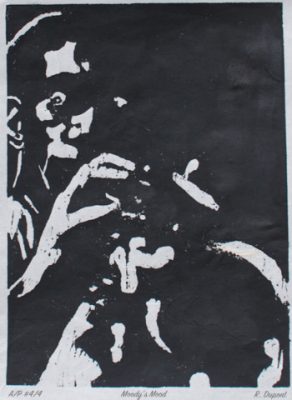
“Moody’s Mood,” by Russell Dupont
.
.
.
Horn of Plenty
…………….(for Coleman Hawkins)
There are flowers, fruits, nuts, and berries
whose scent and taste bring searchers
miles into a forest; none
take you deeper, keep you longer
than notes spilling from The Hawk’s horn
of plenty; here are neon streets (some raucous,
some bleak, some filled with wild revelry),
back alleys, mountains, rivers, and farms (some
bone dry, some grown high for generations); here
are yesterday, tomorrow, and the day after;
here are young love, old love, no love,
love dreamed, and love betrayed; here
are families in struggle,
celebration, defeat, and resurrection;
here lie paths to the heart.
.
by Michael L. Newell
.
.
___
.
.
Thelonious Would Be His Name
Thelonious would be his name
It rolls off the tongue, conjuring up
melodies yet to be sung
A name to make you pause, leaving
a path of brilliant corners in his wake
Thelonious, his namesake
He’d groove with the likes of a Miles
or Trane, performing at Lincoln Center
and Carnegie fame
At a young age I’d give him
a piano, making him catch fire
It would be his heart’s desire
He’d never be called Theo
It Isn’t the same, he’d be too cool
not to use his full name
Perhaps he too would be
on the cover of Time Magazine
Thelonious, my son’s name
in my dreams
.
by Aurora M. Lewis
.
.
___
.
.
Pairings For Pannonica
A Pannonica moth the color
Of yellowed cellophane tape
On the torn page of a book,
Or a moth “with wings
that look as if they’ve been dipped
in Chateau Lafite,”
According to the great-niece
Of Monk’s great patron.
The symmetries found in these.
On the cover of the Criss-
Cross CD, on which “Pannonica”
Is an added track,
Monk’s mirror image is doubled
From the seam in the center
Of the photograph.
His Columbia catalogue
Mostly covers, the critics bitched,
Of his earlier work, though
Each piece was its own variation,
Like the play
Of individual markings,
The versions of “Pannonica”
On Brilliant Corners and Monk
Instances of a species
Identifiable at once,
Pale wings fluttering about
The melody—he said butterfly,
She said moth—arriving
Like all his splendid music
This off-centeredly.
.
by Robert Gibb
.
.
___
.
.
Liner Notes: [Listening to Eric Dolphy]
Five Spot. Jive spot. Bowery bar.
Back in ’61, Dolphy wields his axe,
wails on the alto sax, J-piece
of bent metal — cradles his flute
while fated Booker Little
breaks it down, invoking
the overt possibility of dissonance —
no finger-poppin’ beat here.
Can you DIG it?
The raging buzz of Bee Vamp.
The burning heat of Fire Waltz.
Man, “this is not music to roller skate by.”
There are no clinkers here,
only emotions kept in line
by Waldron’s keys
spinning out notes
in a powerful pulse,
backed by the subtle energy
of Davis’ bass and the beat
of Blackwell’s drums,
reaching, rumbling
into bebop re-harmony.
Five Spot. The magic
of Mingus and Monk
hangs in the air.
Free Jazz – Jazz Free
improvisation.
It’s The End.
.
by Russell Dupont
.
.
.
.
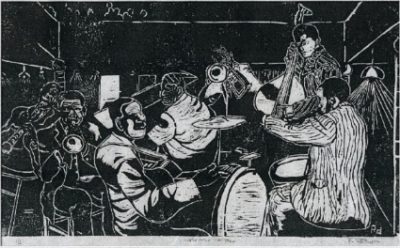
“Take the A Train,” by Russell Dupont
.
.
Performance.Mantra
To take what happens in the moment,
Build on it: This is what I use in concert,
It, my jazz born, jazz spawned.mantra.
There my genie, there my muse,
If I can fuse the three:
The moment, genie, muse and me;
(Oy, that’s four!)
How to mix and rhyme the four –
The moment, genie, muse and/or…
An omen or the lack thereof:
The moment, genie, muse and love:
I echo this long as I live,
Actively and creative,
Taking what is in the moment, bit by bit
Building on it.
This the key
To spontaneity
Demanded of the jazz-borne me.
.
by Arlene Corwin
.
.
___
.
.
Rehearse Rehearse
We who practice our instruments
must ignore the complaints
from neighbors with tin ears
or those who claim their right
to sleep by eleven at night.
And we must accept the fact
that our wailing saxophone
is not up to the blowing of Coltrane
or our guitar solo not as fluid as Clapton.
And, most important,
we should totally disregard
anything else we could be doing
like sleeping, watching television,
drinking with friends.
Raw fingers, sore lips,
nothing can deter us.
We aim to be as good as we can be.
Sure it’s late.
But the future’s not done listening yet.
.
by John Grey
.
.
___
.
.
How To Tame a Serpent In Your Hands
Tonight I’m feckless, loosed upon country lanes.
My sax lifts up double helixes under crusted constellations
whose own ordered constancy may be the thing that’s
cast the die for all of history and every act any man gets done.
But I still have to give my full throated what-for,
my wail in G minor which is like a hotel for loneliness
that I check into for the cash bar and recuperation.
I walk and blow my sax with only live oak’s
twisted limbs for witness. Katydids crank out
mating rhythms in a mode never gets caught in full on tape.
The wash of their aural sea can’t be bottled, comes up fresh
no matter how many times I get in the middle of it.
Give me sines, I’ll give you sines
of what it is that carries us.
Jazzed out, I riff storm winds until I come up on
the moon in a puddle where moon gets jiggled apart, falls together,
golden-wild as honey bees weaving back to their hive.
Moon………………………settles back
into a bright………………………….period
…………………on black.
So of a sudden I play tender. Slim herring bones.
Then low heaves seas and lungs have done
from when till now and on until I finally
get this serpentine, brass to behave in my hands.
I relearn how to let this reed willow slow wind
the way Miles taught, ride notes out until they take me
toward the home we have always had, that’s not on any map.
Settle restful as that bald, stone moon. Period.
.
by Ed Ruzicka
.
.
___
.
.
Boiled Up
The rock of his fingers
scratches out, pounds out
the language of jazz,
spreading over fast hearts and
soft skin.
A wretched smile, crooked with time,
boiled in emotion soup,
spreads him out
as he releases the scars of
high and low,
winds of cold
and years
remembered with trouble.
His fingers swim
the streams of persuasion
as the crowd moves closer
with eyes to his throne
where a wave of sound
becomes captured
and then released
into the
black of his breath.
.
by Roger Singer
.
.
___
.
.
Zulus from Canada
On the matter of Oscar Peterson.
The jury is still out.
He was the real McCoy, he was
Radioactive.
He was the Taj Mahal.
He was butter, not margarine.
Oscar. Like Saul Bellow and Cohen,
He was from Montreal. Down south,
They call it Canada. He was Canadian.
You remember Leonard and Bellow, the
Greatest poet and best novelist, respectively,
Of the 20th century. Oscar rounded out the trio.
He could sing. He sounded like Nat King Cole.
Miracles occur. I think of Augie March down in Mexico.
I think of Leonard Cohen in Buddhist robes sweeping
up at the top of Arrowhead. Bellow and Cohen happened
to be Jewish. Oscar, the mensch.
What stroke isn’t a set back? Cohen too was
Set back when he lost his fortune. All three
Went on the road, they were all looking for
A place to lay their heads. They’ve all been
Around. It was Oscar who missed his children.
Bellow had boys, the others girls or both.
Millions came and went. Bellow wrote letters
To Eisenhower, but refused to help that SOB
Pound. Cohen sang Hallelujah over and over
Again. Only Oscar refused to set it down to music.
He refused to set down music, he kept on going.
He played effortlessly with great effort. They
Called him a genius. The other, amateurs.
Canadians from Brooklyn, or was it Chicago?
Oscar held court in Miami and Frisco. Bellow
wasn’t comfortable on the east coast. Too much
Anti-Semitism. Oscar didn’t give a shit.
Cohen managed to be loved no matter what.
He rose in the esteem of his peers as he grew bigger.
The finest. Saul Bellow from Montreal is said to have
Written the great American novel. Cohen it is said
Was America’s greatest singer song writer, a preacher from
Up north. And Oscar, let’s not quibble, the greatest jazz
Pianist on the planet. What was it, Montreal pastrami?
Montreal kosher and the Caribbean? Excellence knows.
.
by David Lohrey
.
.
___
.
.
Coffeehouse Poem # 419
my muse arrives as Ella
is the soundtrack to the summer day
i ask her about her sandals
as an excuse to to say hello
she tells me about a band
she’s listening to
that i’ve never heard of
and could care less
but i know some millennials
like her like old jazz
maybe she could click her
heels and turn her
birkenstocks into high
heels
and her summer outfit
magically transformed into
into an evening gown
i would spin her around like
fred did ginger
making the night fly by
cheek to cheek
.
by Erren Kelly
.
.
___
.
.
Coffeehouse Poem # 425
i tell the barista, who is named Ella
about my obsession with her namesake
and that she should be flattered
she shares a name with an
icon,
she walks around in
a black knee brace
just about back to normal
i look at her skin and wonder if
she’s ethnic, not that it matters
this is a country of immigrants
despite the MAGA slogan
even white people don’t want to
be white anymore
like Ella, she’s an unlikely goddess
just another girl
finding her place in the
world
.
by Erren Kelly
.
.
___
.
.
Poem in Which I Appear as a Jazz Prophet
I’m in a parking lot at a Sheetz Store
In West Virginia
Where I am possessed by Bud Powell’s solo on I Want to be Happy
So I use both piano hands
When I go to the men’s room
My left a bass
My right imitates Bird and Dizzy
I am a jack-of-all clefs
Says I
Later I think
This particular Sheetz
Has a bad car entrance and exit
I might not stop here next time
I might save it for Jesus
Let Him multiply Doritos and fishes
Like it says in the Bible
With both hands yep
.
by John Stupp
.
.
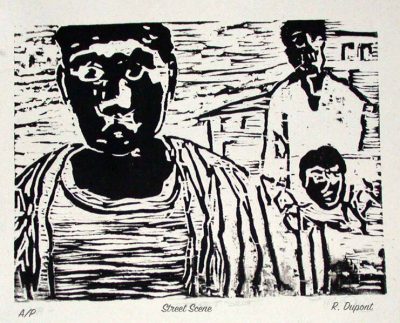
“Street Scene,” by Russell Dupont
.
.
Jazz and Folk
Making the break, making the break.
The rails rattled and there he was,
in the compartment, lighting out for London.
I was salaried, two increments in,
but I’d known him well in town,
the folk club, jazz cellar in Cardigan.
A songwriter and sax man, off now to the smoke,
the clubs and circuits and freelance.
Forty years later, on a pensioned holiday,
I met him in his music shop,
making a living, he said, making a living.
But he’d close soon, trade was slowing.
Yet the jazz and folk were of the loveliest,
he had a poster of a favourite Seeger quote,
The labor movement gave you the weekend,
and we stood talking, in an autumn/spring,
in the dusky blue interior of his shop,
tracing the notes of Bechet’s.Petite Fleur.
.
by Robert Nisbet
.
.
___
.
.
I’ve Listened…
…………………..for Larry
Long ago, maybe the early 80’s,
I smoked while visiting with a polar bear, Central Park zoo
Buzzed, I walked down to Carnegie as the light snow fell gently,
Heard Sonny Rollins leading his young strong band: “a proud man, playing a big horn”
A couple of years earlier, a stadium in Tucson,
I’d dropped something-or-another before a Fleetwood Mac concert,
Watched the tall amp-stands turn into H. R. Pufnstuf monsters,
But they were friendly, harmless; they actually added some background guitar & bass
With Larry, after a long night of drinking, NYC,
We wandered into Illinois Jacquet’s near-deserted club, 58th Street,
Caught the end of the set, the boss’ big band, mostly young guys, knew their books well;
The sound was great, but musicians ain’t businessmen; the empty club closed soon after
In Savannah, I’ve seen Bob Seeley, the 80-year old boogie-woogie master, a “force of nature,”
Saw Kenny Barron, solo piano, at the Festival, his elegant, well-controlled artistry,
Heard a little sweet samba at the Westin across the river, very tasteful, quiet piano, drums & vocal,
I guess I really didn’t need all that stuff in me–the music, after all, will out.
And in the warm little apartment, Pooler, there’s vinyl, tapes, CD’s, and Jonathan Schwartz on computer;
Perhaps the greatest gift of the many that’ve been given. I’ve spent a lifetime listening. I’m still listening.
.
by Phil Linz
.
.
___
.
.
When Music Intertwined
Plaintive cry
Repeat reply
Removed from the warm body of a chorus
To palpitate by itself
A guitar solos
___Until
“I’m bone-stone-alone up here
Can someone
Keep me company?’’
Coaxing an arrow-piercing note that
signals the piano’s full force
the blacks and whites
Of sharps and flats
All together now ___
He wouldn’t have come unless he was invited
The violin’s sobbing of the soul
Colliding with a cello’s resignation
Devoured by drumbeats of rebellion
A trumpet’s wild and whirling notes___
“Mighty fine,
Coming in to bask in your divine.”
Answers the great and thirsty heat of the sax
The soloist takes a bow
All come up on a sudden halt____
“Take five.”.
.
by Susandale
.
.
___
.
.
Flytown Nose Blues
……………………….(after Rahsaan Roland Kirk)
my lips must kiss you equally
but my tongue chooses
one
………..or two
………..or three
and my fingers run
carelessly
………..carefully
………..between you
flying out of Flytown
out of hastily constructed houses
out of my nose into the three-sided night
floating over the cap where Flytown was
spreading Flytown Nose Blues like pixie dust
Flytown dust all over the world
………..same lips
………..kiss each reed the same
………..tongue seeks each differently
………..each caress unique
………..as the same breath flows
.
by Michael Vander Does
.
.
___
.
.
Trumpet
starts…slow
…………………….stuttering
builds to a river glazed
…………………………reflective
…………………………………..red canoe slipping by……another upside down
…………………thunder reverberates whitecaps leap…froth along brushy banks
calls forth a new moon……stars popping
in sync with pines beating back wind as the sky lightens & air calms into day
sows glitter in mudbrown water
………………………………throws glitter through window glass
…………………………………………………………….scatters it across rooftops
dazzles pink boulders and the back of a bullfrog belching his two-note tune
spills notes……cascade thinning
………………………….a trickle
……………………………………………………glitter
…………………………………………………………………everywhere
.
by CJ Muchhala
.
.
.
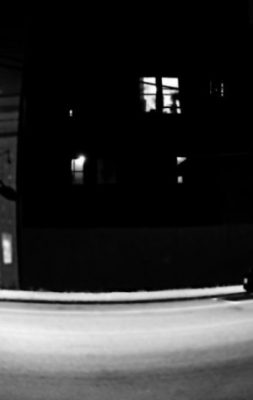
“Belfast, 8 PM,” by Russell Dupont
.
.
Reaching into the Unknown
i don’t know where i’m going Billie Holiday said
but i do know what i’m doing right now –
reaching into the Unknown
she pulls out strange fruit
a blessing for the children
a shroud of crowded heartaches
Don Cherry sits in front of the piano
trumpet in hand
i don’t know how i’ll be doing in the future
but right now i’m doing just fine
reaching into the Unknown
he pulls out Brooklyn he pulls out Mu
he pulls out a cluster of heartbeats & red beans
he travels the world for me with his trumpet-lipped smile
Cherry-co his wiry frame dangling in the Ne(X)t
i don’t know where i was last night Bird chattered
but i know where i’ll be later
reaching into the Unknown
he grabs a fistful of unplayed notes
travelling blindly @ the speed of light
Monk mumbling into the keys
pronounces his name slowly
The..lo..nious
reaching into the Unknown he enters an unknown SPACE
The Lone..Li..Est
Craving more than old Smoke & Broken Treaties
Jim Pepper grabs at the Vastness of the Unknown
finds only remnants of a PEACE Pipe
Art Pepper ties the tornequet tight smokes his final cigarette
& pulls a monkey thru the prison bars of the Unknown
THIEVES WHORES ANGELS & THE UNKNOWN
Miles Davis surrounds himself with the Unknown smiles
whispers hoarsely thru his MUTE
“i am the Prince Of Darkness
there is no Unknown unless i say so”
Sun Ra claims to be from the Unknown
reaching into the Unknown finds himself again & again
in the Unknowable Known
Prez recoils into the Air that surrounds him
he is a foul-mouthed man of few words
his voice & skin are light
reaching into the Unknown
he pulls out crumpled hats & ladies
plucking on the strings of violins
IT DON’T MEAN A THING IF IT DOES NOT SWING IN THE UNKNOWN
The Hawk flew when the wind blew
reaching into the Unknown
he felt Dexter’s hand
reaching into the Unknown
he felt Sonny & Trane
he felt Dolphy & Ayler
Hope Nichols & Hassan walked in after Bud
They reached into the Unknown
& found that time was more pliable than one would imagine
played for nickels & dimes
& hope & legend & TIME
i know where i am Blakey said
& i’m tougher than the Unknown
as he reaches for another message from the Mothership
& Max still reaching
knows that inside every moment of the Waltz
another Waltz is waiting
Visions of the Unknown & Unknown Visions
DUKE LOUIS BROWNIE LEE
uncountable names
forgive me for not being epic
Reaching into the Unknown
i pull out theses words that pull out these words that pull out these words
that pull out these WORDS…
…………………………(originally published in Reaching Into the Unknown, 2008)
.
by Steve Dalachinsky
.
.
.
__________
.
.
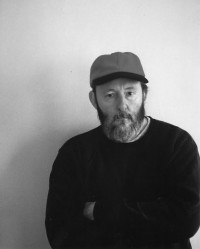
Russell Dupont is an artist and an author. His paintings, prints and photographs have been widely exhibited and are in a number of public and private collections, including the Print Collection of The Boston Public Library; The Art Collections of both Brigham & Women’s Hospital and The Dana Farber Cancer Institute. He is a former artist-in-residence at the Milton Art Museum.
He is also the author of two novels — King & Train and Waiting for the Turk; two chapbooks of poetry – Winter, 1948 and Establishing Home Plate; and two non-fiction chapbooks — Up in Wisconsin: Travels with Kinsley and There Is No Dam Now At Richford.
His essay, “The Corner,” is included in the anthology Streets of Echoes and his work has been published in various newspapers and literary magazines. He was the publisher of the former literary magazine, the albatross.
The prints illustrated within this collection are hand-pulled woodcuts, created by carving a reverse image into a sheet of wood and, when the lengthy process is completed, inking the carved “plate,” then laying on top of it a sheet of Japanese rice paper which is then hand-rubbed with a baren to transfer the image onto the paper.
To view more of his work, visit his website by clicking here
.
.
___
.
.
.
.
.

John Stupp’s third poetry collection.Pawleys Island.was published in 2017. His manuscript.Summer Job.won the 2017 Cathy Smith Bowers Poetry Prize and was published in August 2018. A chapbook entitled.When Billy Conn Fought Fritzie Zivic.will be published by Red Flag Poetry in 2020. He lives near Pittsburgh, Pennsylvania. From 1975-1985 he worked professionally as a mediocre jazz guitarist.
.
.
___
.
.
Freddington works as a shipper/receiver in Toronto, Canada, and has been a lifelong jazz fan ever since he was “corrupted” as a teenager by Charles Mingus’ “Wednesday Night Prayer Meeting.”
.
.
___
.
.
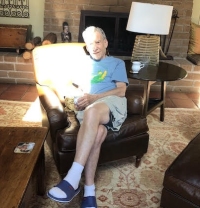
Gerard Sarnat is a retired physician who has built and staffed homeless and ex-prisoner clinics. He was also a Stanford professor and healthcare CEO. .As a writer, he has won First Place in Poetry in the Arts Award, the Dorfman Prize, been nominated for .a handful of recent .Pushcart and Best of the Net Awards, published four collections and appeared in .Stanford, Johns Hopkins, Harvard, Pomona, Brown, Columbia, Wesleyan, University of Chicago periodicals as well as in Review Berlin, Gargoyle, Main Street Rag, American Journal Poetry, Free State Review, Poetry Quarterly, New Delta Review, Brooklyn Review, LA Review, San Francisco Magazine, and The New York Times.
.
.
___
.
.
Michael L. Newell is a retired English/Theatre teacher who has recently moved from Oregon to Florida. In the past year, he has had poems published in Current, Ship of Fools, The Iconoclast, Verse-Virtual, Shemom, Black Poppy Review, and Poppy Road Review. His most recent book is Meditation of an Old Man Standing on a Bridge (Bellowing Ark Press, 2018).
.
.
___
.
.

Anggo Genorga is from the Philippines and works as a manager of a local band called Wonder Woman’s Electric Bra. Recent writings can be found at Horror Sleaze Trash, Devote, Duane’s Poetree, Outlaw Poetry Network, Paper And Ink Zine, Red Flag Poetry, In Between Hangovers, Dubai Poetics, The Odd Magazine and Walking Is Still Honest Poetry Press. Also at Empty Mirror, Mad Swirl, Guide To Kulchur Creative Journal, Silver Birch Press Bukowski Anthology and Verses Typhoon Yolanda, a book for benefit published by Meritage Press and the now defunct The Screech Owl and Dead Snakes.
.
.
___
.
.

Paula Puolakka .is a Beat poet, writer, and MA (History of Science and Ideas) who has won poetry, short story, and essay contests. Her work can be found through, for example, Rural Oklahoma Museum of Poetry (the “Word Daubers” poetry collection on Lulu,) Woody Guthrie Poets (the “Speak Your Mind” anthology,) Arts Quarter Books (the “Arts and Minds” and “Words Catch Fire” anthologies,) Spillwords Press, Former People, The Voices Project, and Poetry Potion.
.
.
___
.
.

Patricia Carragon’s recent publications include.Bear Creek Haiku, First Literary Review-East, A Gathering of the Tribes, The Café Review, Muddy River Poetry Review, Krytyka Literacka, Panoplyzine, Poetrybay, Nixes Mate,. and .Sensitive Skin. Her.latest books from Poets Wear Prada are. Meowku .and .The Cupcake Chronicles, and. Innocence.from Finishing Line Press. Patricia hosts Brownstone Poets and is the editor-in-chief of its annual anthology. She is an executive editor for. Home Planet News Online.
.
.
___
.
.

Dr. Roger Singer.has been in private practice for 38 years in upstate New York. He has four children, Abigail, Caleb, Andrew and Philip and seven grandchildren. Dr..Singer.has served on multiple committees for the American Chiropractic Association, lecturing at colleges in the United States, Canada and Australia, and has authored over fifty articles for his profession and served as.a medical technician during the Vietnam era.
Dr. Singer has over 1,050 poems published on the Internet, magazines and in books and is a Pushcart Award Nominee. Some of the magazines that have accepted his poems for publication are: Westward Quarterly, Jerry Jazz Musician, SP Quill, Avocet, Underground Voices, Outlaw Poetry, Literary Fever, Dance of my Hands, Language & Culture, Adelaide Literary Magazine, The Stray Branch, Toasted Cheese, Tipton Poetry Journal and Indigo Rising, Down in the Dirt, Fullosia Press, Orbis, Penwood Review, Subtle Tea, Ambassador Poetry Award Massachusetts State Poetry Society, Louisiana State Poetry Society Award, Mad Swirl Anthology 2018.
.
.
___
.
.
.
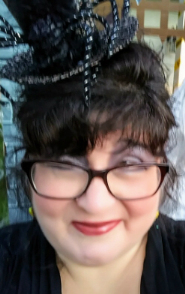
Felicia Sanzari Chernesky is a longtime editor, slowly publishing poet, and author of six picture books, including .From Apple Trees to Cider, .Please! .and .The Boy Who Said Nonsense (Albert Whitman & Company). Last year she moved away from the masthead of an academic quarterly to work with writers who want to share their stories, ideas, and poems in print. It’s been a joy—and quite an adventure.
Find her online at. https://feliciachernesky.com/
.
.
___
.
.

Kristofer Collins is the books editor for Pittsburgh Magazine. He is the author of several poetry collections, most recently. Salsa Night at Hilo Town Tavern.published by Hyacinth Girl Press. He lives in Pittsburgh, PA with his wife and son.
.
.
___
.
.

Phil Linz was born in Brooklyn, NY and has lived in several cities across the United States. He began writing poetry in 1971 and is founder and publisher of Fierce Grace Press, which specializes in chapbooks, believing in the concept of “Publishing Under the Radar.” Mr. Linz currently lives in Wilmington, DE; he may be reached at [email protected].
.
.
___
.
.
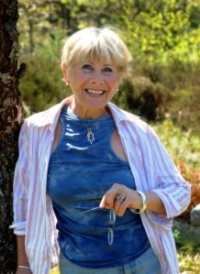
Arlene Corwin has been a jazz musician since 1951, and continues to work as a pianist/singer in Sweden, where she now resides. Her mother owned a jazz club with Slim Gaillard in Hempstead, Long Island called The Turf. She has published 17 books of poetry.
.
.
___
.
.

Phyllis Wax writes in Milwaukee on a bluff overlooking Lake Michigan. Among the anthologies and journals in which her poetry has appeared are: The Widows’ Handbook, Birdsong, Spillway, Peacock Journal, Surreal Poetics, Naugatuck River Review, New Verse News, Portside, and Star 82 Review. A Best of the Net and Pushcart Prize nominee, she has read in coffee houses, bars, libraries and on the radio. Her work has been exhibited with art quilts and weavings in a variety of venues around the state of Wisconsin as part of four poet/fiber artist collaborations.
She can be reached at: [email protected]
.
.
___
.
..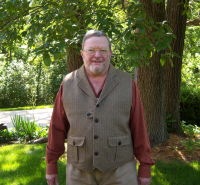
Alan Yount, 71, has written and published poetry for over 50 years. His many poems have appeared over the years in publications such as WestWard Quarterly (where he was invited to be the Featured Writer and Poet for the summer, 2018 issue), Big Scream, Green’s Magazine (Canada), Spring: the Journal of the E.E. Cummings Society (academic journal), Wind, Legend, Roanoke Review, Tidepool, Art Centering Magazine (Zen Center of Hawaii), Wormwood Review, Palo Alto Review, Barefoot Grass Journal, Frontier: Custom & Archetype, Modern Haiku, and The Pegasus Review.
He has been in three anthologies: Passionate Hearts (New World Library), Sunflowers and Locomotives: Songs for Allen Ginsberg (published by Nada Press and the poet David Cope). Alan was one of 31 poets along with Gary Snyder and Lawrence Ferlinghetti. The third anthology was The Chrysalis Reader.
Alan also plays jazz trumpet, and has led his own dance band. He is a direct descendant of the famous frontiersman, Daniel Boone.
.
.
___
.
..
.
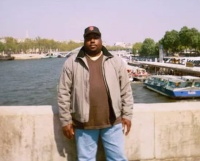
Erren Kelly is a two-time Pushcart nominated poet from Boston whose work has appeared in 300 publications (print and online), including Hiram Poetry Review, Mudfish, Poetry Magazine, Ceremony, Cacti Fur, Bitterzoet, Cactus Heart, Similar Peaks, Gloom Cupboard, .and .Poetry Salzburg.
.
.
___
.
.
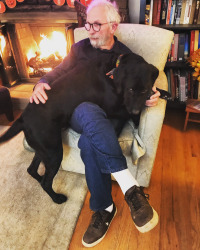
Gerard Furey was born in Scranton, PA when people there sounded like people from Mayo, Ireland. He was raised in Pittsburgh in the South Hills when nobody there could care about people from the North Hills and there was always work at the mills. He had a standard ’50s -’60’s upbringing: Altar Boy, smoking cigarettes at 11, work after school and summers from 13, expulsion from high school. He taught high school literature classes for 40 years.
.
.
___
.
.
Terrance Underwood is a retired Rolls-Royce Service Engineer, veteran, College Grad (B.A. History) who has been listening to recorded jazz music since he was 5-6 yrs old. One of his first memories is listening to a 78 version of “Cherokee” by Charlie Barnett.
.
.
___
.
.
.

Aurora M. Lewis. is a retiree in her late sixties, having worked in finance for 40 years. In her fifties, she received a Certificate in Creative Writing-General Studies, with Honors from UCLA. .Aurora’s poems, short stories, and nonfiction have been accepted by The Literary Hatchet, Gemini Magazine, Jerry Jazz Musician, Persimmon Tree, The Blue Nib, Trembling in Fear, and Jitter Press to name a few...She has been nominated for two Pushcart Prizes as well as The Best of the Web. She has also won one poetry contest.
.
.
___
.
.
Robert Gibb’s books include After, which won the 2016 Marsh Hawk Press Poetry Prize and Among Ruins, which won Notre Dame’s Sandeen Prize in Poetry for 2017. Other awards include a National Poetry Series title (The Origins of Evening), two NEA Fellowships, a Best American Poetry and a Pushcart Prize. A new book, Sightlines, has won the Prize Americana for Poetry 2019.
.
.
___
.
.
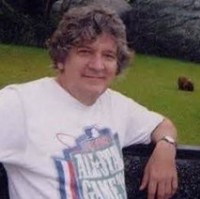
John .Grey.is an Australian poet, US resident. Recently published in
That, Dunes Review, Poetry East and North Dakota Quarterly with work
upcoming in Haight-Ashbury Literary Journal, Thin Air, Dalhousie
Review and failbetter.
.
.
___
.
.

Ed Ruzicka has published one full length volume, “Engines of Belief.” His poems have appeared in the Atlanta Review, Rattle, the New Millennium Review, and Chicago Literati, as well as other literary journals and anthologies. Ed lives in Baton Rogue, LA and is an occupational therapist. More works can be found on his website, edrpoet.com.
.
.
___
.
.
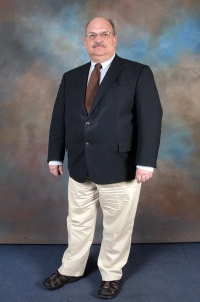
David Lohrey grew up in Memphis and graduated from University of California, Berkeley. David’s plays have been produced in Switzerland, Croatia, and Canada. His poetry can be found in literary journals in the US, .Australia,. the UK, .India, .Canada, and Malawi. His fiction can be read online at The Broke Bohemian, Terror House, Literally Stories, and others. ..David’s .The Other Is Oneself,. a study of 20th century .Postcolonial novelists, was published in 2017 in Germany. . .Machiavelli’s Backyard, his. first .collection of poetry, was published by Sudden Denouement Publishers. .His newest collection .Who Started the Fires? .is soon to be released. .He lives in Tokyo.
.
.
___
.
.
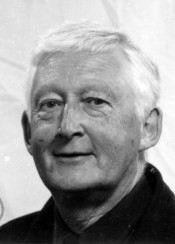
Robert Nisbet .lives in the UK, in rural Wales, about as far as you can get from London, travelling West. His poems have been published widely in Britain and the USA, including regular appearances in .San Pedro River Review, Panoply.and.Red River Review.
.
.
___
.
.

.
Susandale’s poems and fiction are on WestWard Quarterly, Mad Swirl, Penman Review, The Voices Project, and Jerry Jazz Musician. In 2007, she won the grand prize for poetry from Oneswan. The Spaces Among Spaces from languageandculture.org has been on the internet. Bending the Spaces of Time from Barometric Pressure is on the internet now.
.
.
___
.
.
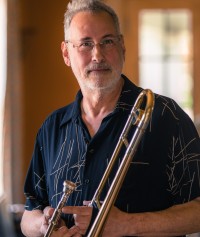
Jazz.Poet filmmaker Michael Vander Does is from Columbus, Ohio. He performs with The Jazz Poetry Ensemble (poetry/trombone/leader) (www.makejazznotwar.org). His poetry is informed by avant-garde jazz.
.
.
___
.
.
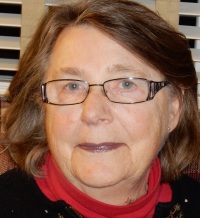
CJ Muchhala has absolutely no musical ability but a great deal of appreciation for and love of jazz and blues. She does, however, try to make music with words which have found their way into a number of journals, anthologies, and art/poetry exhibits.
.
.
___
.
.
.

Steve Dalachinsky, who passed away in September, 2019, was a prominent New York downtown poet.
.
For a complete biography, visit his Wikipedia page.
.
.
________
.
.
.
Click here to learn how you can submit your work for consideration
.
.
.






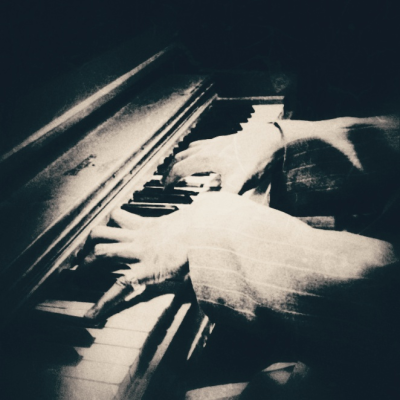


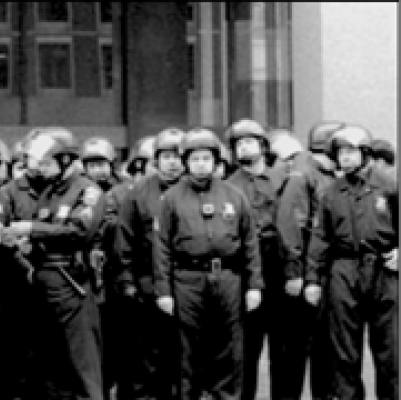









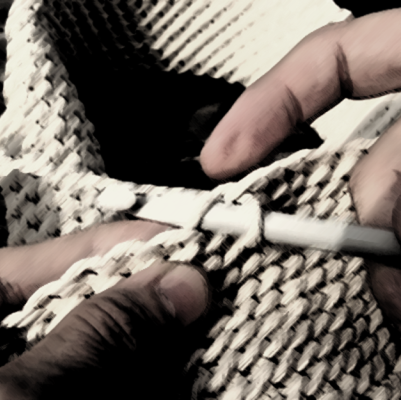
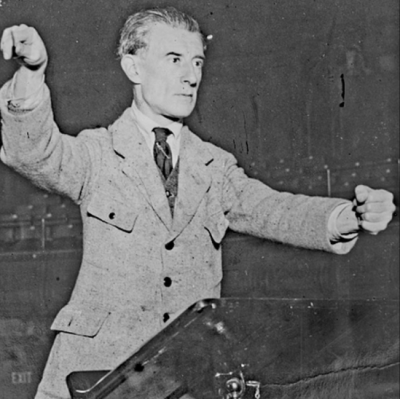

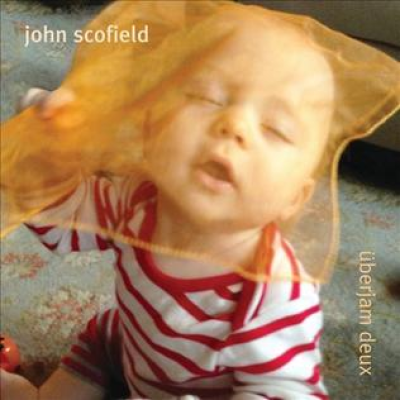
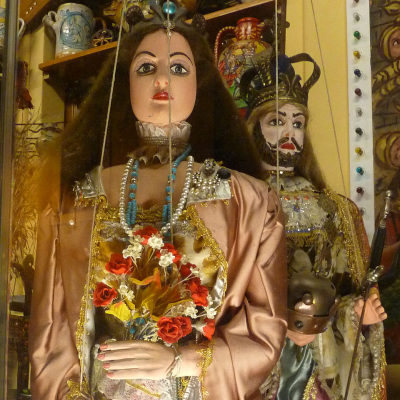





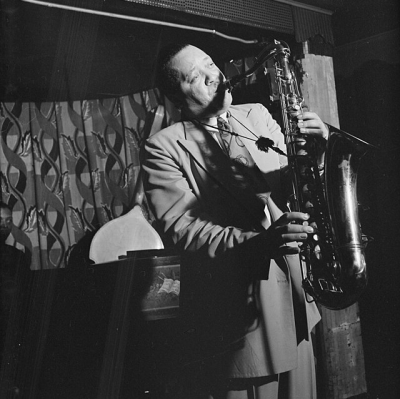

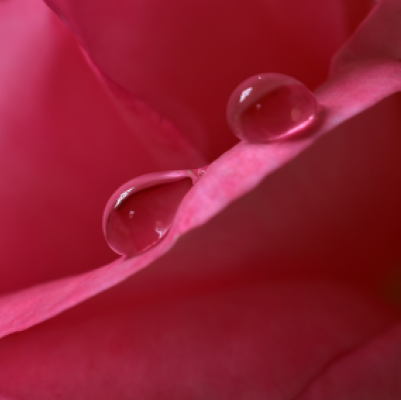











Loved the wood cuts with this group of poems! And the poems– many ostensibly about music but really about loss! Freddington, Newell, Stupp, Yount, Kelly, Dupont, Furey, Muchhala, Corwin, the late Dalachinsky — I can’t name all the poets who outdid themselves this time. Thank you, Joe, for this good, jazzy work.
Phyllis Wax: “Lakelight Swing” moves, grooves, swings, and sings. A joy to read.
John Stupp: “Jazz” tells it like is. You have said it all, brother. The world swings in 35 words.
Freddington: “Jazz Is” exactly what you say it is here. Your poem creates a living, breathing world filled with music.
John Stupp: “Don’t Call It Jazz” is a thoroughly delightful piece of whimsy.
Gerard Sarnat: “And All That Jazz” is perfectly sewn together by the closing four words. Cool! Very!
Anggo Genorga: “Trip Down Memory Lane” is quietly touching and is a deft creation.
John Stupp: : “Threnody” is moving and wise.
Paula Puolakka: “Good Old Average Guys” evokes a quiet smile, a cold beer, and some football in the parking lot, coed on a good day. Glad to see Roger Miller mentioned.
Patricia Carragon: “Autumn in New York” is an intimate poem with emotional and visual sweep. It is almost like a jazz version of Galway Kinnell’s poem, “The Avenue Bearing the Initial of Christ into the New World.” I always enjoy Ms. Carragon’s work, but this may be the best poem of hers that I have had the privilege of reading.
Felicia Chernesky: “Girl and Guitar” is a thirteen line burst of perfectly realized lyricism. It is filled with great beauty combined with a closing three words of absolute perfection that make the poem sing.
Kristofer Collins: “Pat Martino at The Balcony” is a memory piece that is beautifully constructed and aches with the pain of loss.
Alan Yount: “It Is For Sure! Just Jazz!” is very cool, very rhythmic, and great fun.
Erren Kelly: “Pharaoh Sanders” is filled with beauty, celebration, pain, and a powerful irony informs its final five lines. Mr. Kelly always delivers the goods.
Freddington: “Into the City” is filled with the raw energy and details of life. It brings an urban world vividly alive. Carl Sandburg would have saluted this poem. So might have Philip Levine.
Gerard Furey: “Manhattan Cantos” is clever and lively and carefully realized. It is always a pleasure to read a poem that marries craft to joy, insight to imagination. This poem is a fine achievement.
Terrance Underwood: “After Anna May Wong Drank Champagne” is built around a carefully realized and well-constructed poetic insight. This is a poem worth multiple readings.
Aurora M. Lewis: “Thelonious Would Be His Name” is a lovely flight of fancy and fine tribute to a great musical artist. It also brings a mother’s heart alive.
Robert Gibb: “Pairings For Pannonica” is a musical history lesson, a fine exercise in imagination, and a poem as well-constructed as a fine jazz creation.
Russell Dupont: “Liner Notes: [Listening to Eric Dolphy]” is way way cool, swings in its own nouveau way, celebrates a past which is still ahead of our future. It is fine work.
And, by the way, Mr. Dupont’s pictures make this whole gathering of poems and poets far richer than words alone might have done.
Arlene Corwin: “Performance Mantra” is fun, insightful, and contains a poetic credo well worth living by. It manages to marry a well-honed sense of humor to genuine artistic vision.
John Grey: “Rehearse Rehearse” is another fine poem that brings alive a poet’s credo, in the guise of a musician’s credo — or perhaps they are one and the same. As is always true of a John Grey poem, the craft in this poem reveals years of hard, disciplined work.
Ed Ruzicka: “How To Tame a Serpent In Your Hands” is a wild, passionate burst of lyricism that sweeps this reader along.
Roger Singer: “Boiled Up” captures the passion of musical performer and attentive audience. It is filled with energy.
David Lohrey: “Zulus from Canada” is a most enjoyable look at three great artists: Saul Bellow, Leonard Cohen, and Oscar Peterson. The poem makes artistic judgements that are defensible, but you don’t have to agree with all of the opinions to love the poem, and the cleverness and insight with which it is written.
Erren Kelly: “Coffeehouse Poem # 419” is a delight. You have to love a poet who loves Ella Fitzgerald and can do her justice. Mr. Kelly is just the man.
Erren Kelly: “Coffeehouse Poem # 425” is another poem using Ella as a lens to look at the world around us with clearer eyes. Erren Kelly is one fine poet.
John Stupp: “Poem in Which I Appear as a Jazz Prophet” is humorous, imaginative, and more than a little surreal.
Robert Nisbet: “Jazz and Folk” is, like many poems by Mr. Nisbet, a quiet, delicate memory piece filled with genuine life moments and aching reminiscence. His Welsh voice is always filled with its own distinctive music.
Phil Linz: “I’ve Listened…” charts the richness found in living a life listening carefully to music, music of many different sorts. The poem has humor, history, imagination, but most importantly, lots and lots of music.
Susandale: “When Music Intertwined” contains a nice description of how musical instruments join together, and has a tip of the hat to Dave Brubeck and his group to end the poem.
Michael Vander Does: “Flytown Nose Blues” is dedicated to Rahsaan Roland Kirk, who has found in the poem’s creator a kindred spirit, one who breaks rules to bring the world, musical and otherwise, alive.
CJ Muchhala: “Trumpet” creates a poetic world that finds music in the richness of the natural world and gives it clear expression.
Steve Dalachinsky: “Reaching into the Unknown” is a remarkable inventory of jazz history, its richness, its raw essence, its experimentation, its mastery of the unknown and unknowable. The poem is a celebration of music and life, and the way in which music enriches life and gives it purpose and meaning.
What struck me was the wide range of jazz musicians and music that inspire all this great poetry – from Pat Martino to Pharoah Sanders, from Coltrane to Brubeck. Incredible! Thanks everybody!
Michael Newell: I’m sure we all appreciate the care you’ve taken to articulate such a set of generous responses. I too found it a most vivid and sparky collection. Thanks to all.
Michael L. Newell, thank you! I’m blushing. You’ve made my night with what you said about “Autumn in New York.”
Michael, you are generous with your comments and show appreciation for everyone’s work. Kudos to you and all the poets here. Jazz on all! Miss you Steve Dalachinsky!
Happy to be part of this community of excellent writers.
Patricia =^^=
As the publisher of this website, it continues to be a blessing to work with the poets within this growing community, and to witness the support you have for one another. It is an enriching experience for me, and I trust one for readers as well. With deep gratitude to all the poets published within this collection, and to the many others who also submitted their work…Joe
from tell-all wood cuts, to unique pairings of words, to passions, emotions, melancholia___ to yesterdays’ brilliance of squeezing yearnings. Joe, your latest poetry collection holds it all. Good, good stuff. Congratulations to your poets, Joe. Some terrific stuff. Susandale
Dear Mr. Newell.
Thank you for your sweet words.
Yes, Roger Miller is the best.
Since you took the time to go through all the poems, I would feel ill-mannered not to provide some feedback. I will randomly choose five poems, and I think it would be nice if the other readers could also choose a poem or two and give some feedback to the writers. (Just a suggestion, no pressure.)
I wish you all the best day of your life.
With best regards,
Paula
The List:
John Stupp: “Don’t Call It Jazz”
The reader can feel the awkwardness of the old situation. The last three lines are puzzling: Is this irony, embarrassment, or shyness, Mr. Stupp?
John Stupp: “Threnody”
Mr. Stupp: In this poem, his spirit is alive, and he would admire your salute, I’m sure, if he could, face-to-face.
Music is always there. It ties together the past, the present, and the future. Bob Dylan sang: “Friends will arrive, and friends will disappear,” but like in this poem, you can always put an old tune on to celebrate someone’s memory.
Phyllis Wax: “Lakelight Swing”
The rich vocabulary makes the old jazz movies and posters come alive. Very impressive.
Michael L. Newell: “Horn of Plenty”
I got the same feeling as when reading John Stupp’s “Threnody.” Music is always there for you. It ties together the past, the present, and the future. The most important question, probably, is: What is the essence of your heart? I could not help but think about the song “When the Music’s Over” by The Doors.
David Lohrey: “Zulus from Canada”
The poem makes the reader think about the essence of different individuals. What is true, pure, and essential when you delete the impact of the labels which are associated with someone’s birthplace, etc.? “Who Are You” by The Who.